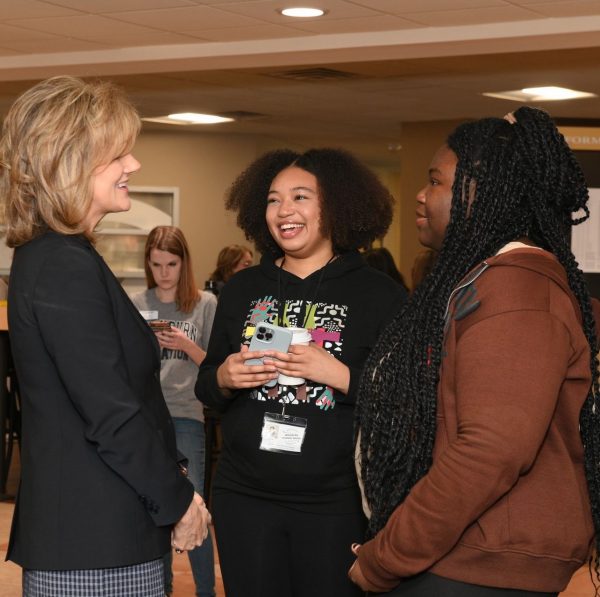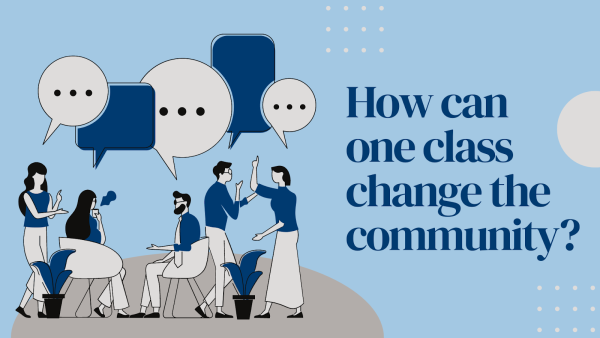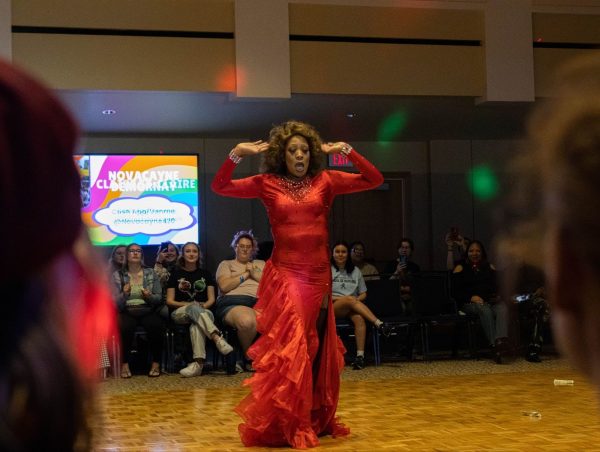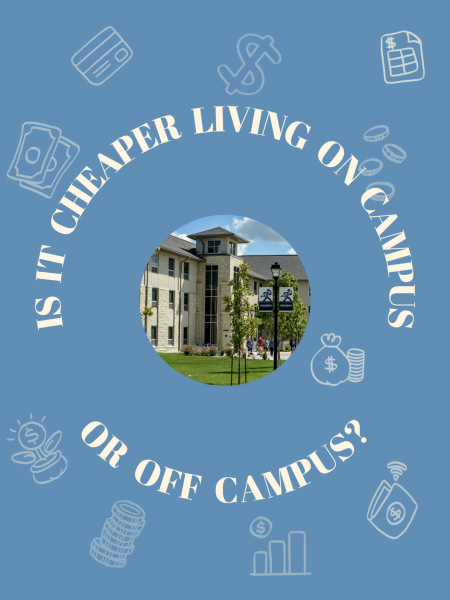A peculiar case: How and why senioritis affects college seniors
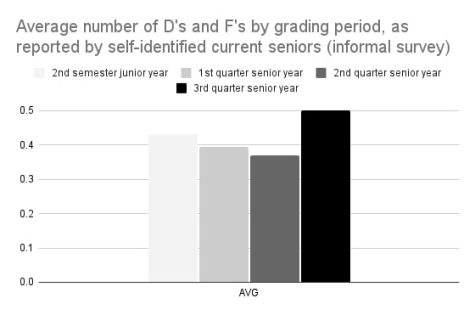
Senioritis affects both college and high school seniors. A bar graph shows the rise in average number of D’s and F’s among high school seniors of Oak Park and River Forest High School in Oak Park, Illinois.
Amid the hysteria that is senior year lurks a deadly yet widely accepted phenomenon: senioritis.
Senioritis is defined by the Merriam-Webster dictionary as “an ebbing of motivation and effort by school seniors as evidenced by tardiness, absences and lower grades.”
While this is an affliction many seniors develop, its validity as a real condition is controversial. Angela Duncan, lecturer of psychology, explains that the term “senioritis” is merely a neologism that is more of a feeling than an illness.
“In scientific terms, it’s going to be called ‘burnout,’ or ‘amotivation,’ which is, like, lack of motivation,” Duncan said. “Burnout is like you’re worn out; the barriers outweigh or are taking over your ability to go forward with something.”
Duncan is a trained therapist and clinical psychologist whose expertise lies in analyzing motivation. She discusses that one’s motivation or lack thereof can be traced back to the firing of certain brain areas.
“Executive function, decision making and things like that happen in our frontal lobes. So, my argument would be that when we lose motivation, this area of the brain is not lighting up as much,” Duncan said.
Perhaps this is what is occurring in the brain of Maggie Cabrera, a senior mass media major with a journalism emphasis who is currently experiencing senioritis.
“I feel like I’ve hit a wall. Every time I try to do something, I sit there, and I stare at my computer until it’s time to go to bed,” Cabrera said. “I think it’s just a mental block that I’m trying to push through, because I have three more months left and I feel like all of this won’t matter whenever I have a job.”
Christina Noland, a mass media major with an advertising and public relations emphasis, is another victim of this ailment. Though, her case is more extreme than Cabrera’s.
“This is the first semester I’ve had to deal with an incomplete because of senioritis last semester, and this is also the semester where everything that could possibly go wrong at work or in school has gone wrong at work or school,” Noland said.
Noland also lost her beloved 4.0 GPA to senioritis. She accredits all of these struggles to a lack of focus.
“I will be telling myself out loud, ‘just do this, just focus and get it done,’ because it’s the only way anything gets done. And that’s the only thing that has seemed to help. More caffeine doesn’t help. More sleep doesn’t help because I’m still stressing about it. So, realistically, the only thing that’s worked for me is just to force myself – even if I’m really tired – to just do it so I can have less stress, and so I can sleep better,” Noland said.
Although the varying side effects of senioritis pose a threat to seniors, there is still hope for its targets. Shanise Brooks, a student success coach, has worked with a number of students over her four years at Washburn, many of whom have felt senioritis. She wants seniors to know that these feelings are normal.
“It’s OK to feel uncertain, it’s OK to feel stressed. A lot of people are feeling the same way coming out of their senior year. And it’s OK to take a gap year before you go into grad school, or into another program or starting your professional career,” Brooks said.
Brooks claims the best cure to senioritis is concentrating on the end goal of college.
“This is where it’s the most exciting part, looking forward to walking across the stage and hearing your parents tell you that they’re proud of all your hard work. Seeing the look of faculty and staff that’s been with you that long, over the course of the four years and see you accomplish what you set out to do. That’s the moments that [seniors] have to focus on,” Brooks said.
For any student struggling with a lack of motivation in their studies, there are multiple resources available at Washburn.
Counseling Services, located in suite 200 of Kuehne Hall, offers free counseling to Washburn students. The office can be reached at 785-670-3100. For more information, visit its webpage at https://www.washburn.edu/student-life/services/counseling/index.html.
The Psychological Services Clinic, located in room 111 of Henderson Learning Center, is ran by master’s students and offers therapy services at a $10 fee per session. The clinic can be reached at 785-670-1750. For more information, visit its webpage at https://www.washburn.edu/academics/college-schools/arts-sciences/departments/psychology/psychological-clinic/index.html.
Students who would like to meet with a student success coach can use the ‘raise hand’ feature in the Navigate app, available in the App Store and Google Play Store.
Edited by Regina Cassell
Your donation will support the student journalists of Washburn University. Your contribution will allow us to purchase equipment and cover our annual website hosting costs.




